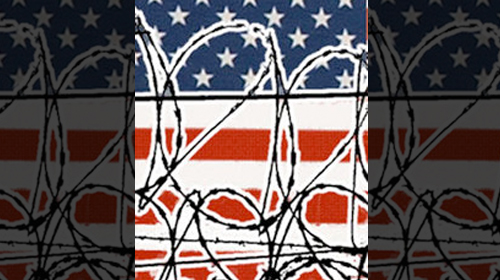
European nations are making slow but steady progress towards holding their own officials accountable for their complicity in the CIA's secret rendition, detention, and interrogation programs. This past Tuesday, members of the Civil Liberties Committee of the European Parliament heard illuminating evidence on U.S.-run secret detention sites in Europe and on the complicity of some European government officials in the extrajudicial practices of the CIA in Europe during the Bush years.
In 2005, prompted by media reports of illegal CIA activities on European soil, the European Parliament began an independent inquiry into possible human rights abuses committed on the continent or carried out with the assistance of European officials. After hearing from a panel of legal experts on Tuesday, European Parliamentarians denounced the current "law of silence among governments" on allegations of "serious breaches of human rights, kidnapping, torture, [and] secret detentions," noting a "clear complicity of the [European] authorities." Following the hearing, the Civil Liberties Committee announced that it will be preparing a report in light of the new evidence presented.
Also on Tuesday, media accounts reported that in January of this year Polish prosecutors criminally charged the former head of Poland's intelligence service for his role in helping the CIA set up extrajudicial and secret prisons in the country. The charges have been kept secret until now. The investigation leading to these charges was catalyzed by prior reports of the European Parliament and Council of Europe that had established the existence of secret CIA facilities in Poland.
In stark contrast to its European allies, the U.S. government has made little to no progress towards accountability. As one journalist's account puts it, U.S. officials have been "careful and calculated in attempting to delay, suspend, or block efforts made by foreign countries to achieve justice for victims of rendition, detention, and torture." For example, WikiLeaks cables released in 2010 describe how government officials sought to undermine several international investigations into extrajudicial U.S. practices, including a criminal complaint filed in Spain against the U.S. officials who had authorized the use of torture.
Similar tactics were employed by State Department officials in 2007 to undermine steps taken by German and Spanish prosecutors to fully investigate the rendition, detention, and torture of Khaled El-Masri, a German citizen who, in a notorious case of mistaken identity, was abducted, drugged and transported from Macedonia to a CIA black site in Afghanistan, where he was tortured for several months. Mr. El-Masri was eventually released without explanation or charge. On behalf of Mr. El-Masri, the ACLU challenged the CIA's detention and torture of him, but the government invoked its infamous "state secrets privilege" to prevent the case from being heard in court. Ultimately, the Supreme Court refused to review Mr. El-Masri's case.
The ACLU has also sought accountability for torture policies and practices of the U.S. military in Iraq and Afghanistan. While accountability in U.S. courts against senior members of the U.S. military command has met a similar fate to cases brought against the CIA, the ACLU, undeterred, has recently sought accountability on the world stage. Just last week we filed a petition, an international legal complaint, with the Inter-American Commission of Human Rights on behalf of three Afghans and three Iraqis who were subjected to torture, including severe and repeated beatings, cutting with knives, sexual humiliation and assault, and mock executions, by U.S. military personnel in Afghanistan and Iraq in 2003 and 2004.
The Obama administration's failure to properly investigate and acknowledge the wrongs done by the prior administration means that accountability is largely now being pursued abroad, not at home. That's a sorry state of affairs.
Learn more about accountability for torture: Sign up for breaking news alerts, follow us on Twitter, and like us on Facebook.



